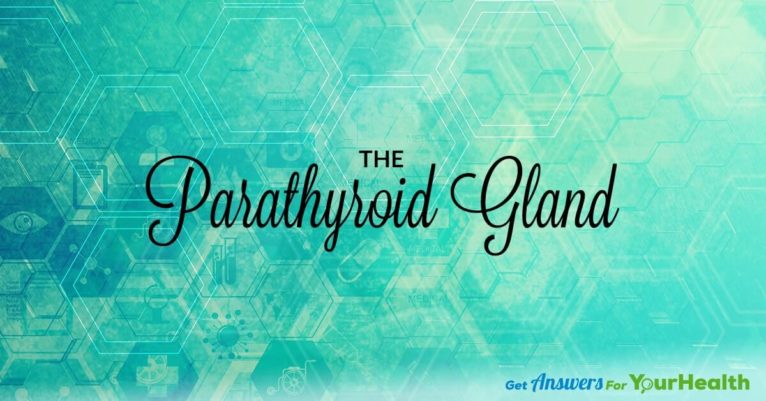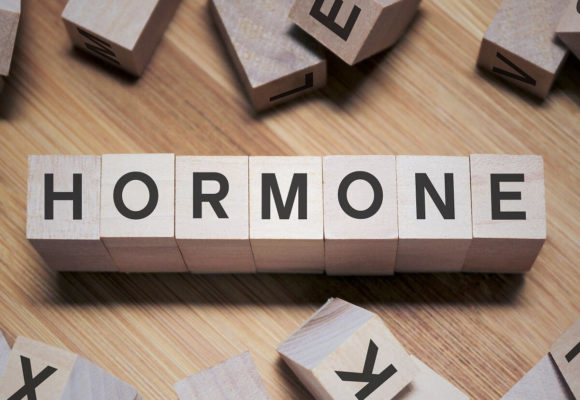1) Grab a FREE copy (Value $14.95) of one of my books Thyroid Symptom Overload
Just pay shipping $7.95 for any US orders. Or, if you want to pay full price plus shipping, order from Amazon :)
2) Take our Thyroid Quiz today and find out what "Thyroid Type" you have
This quiz will help you quickly discover where your symptoms are stemming from.
3) Join Our Thyroid Advocate Membership Site - Natural Thyroid Academy
FREE for a limited time. No credit card required.
4) Work with me and my team privately
Schedule your FREE 15 minute phone consultation and we can find out the best way to help you specifically.
Belonging to the endocrine system, the parathyroid glands are located behind the thyroid gland in our neck. Unlike the thyroid gland, which regulate a majority of the systems in our body, the parathyroid glands control the calcium in our bodies. A normal human endocrine system has 4 parathyroid glands, each the size of a rice grain.
A Look into the Role of Calcium
On a lighter note, the increasing medical bills of dentists and orthopedic doctors itself explain the role of calcium in our bodies. We all know that calcium is necessary for our teeth and bones. By strengthening our bones, it helps maintain the balance and assists our physical movements. However, we often overlook two very important roles of calcium in our bodies.
Electrical Energy for the Nervous System
Human nervous system requires electrical impulses to send signals through the nerves. Calcium provides these electrical impulses, which means that high or low calcium levels affect the performance of nervous system.
Electrical Energy for the Muscular System
The muscles require electrical energy for contraction and relaxation. As calcium provides this electrical energy, low calcium levels in the body may cause muscle cramps as early symptom.
Mother Nature has gifted calcium its own regulatory system in our bodies. An interesting fact is that no other mineral has its own regulatory system. The parathyroid glands, the regulatory system of calcium, work within a very narrow range. Almost every minute, the parathyroid glands calculate the amount of calcium in the blood. If calcium amount is low, parathyroid glands release Parathyroid Hormone, which stimulates the release of calcium from bones and supplies it to the blood. If calcium increases in the blood, parathyroid glands terminate the production of Parathyroid Hormone until the calcium levels in the blood reduce.
Parathyroid Gland Dysfunction
Parathyroid gland dysfunction occurs when at least one of the four glands produces less or more Parathyroid Hormone, compared to the body’s requirement. The dysfunction is categorized as follows.
Hyperparathyroidism
Also known as the destructive disease of parathyroid glands, Hyperparathyroidism occurs when one or more parathyroid glands produce excessive Parathyroid Hormone. The excess Parathyroid Hormone releases into the blood and stimulates the discharge of calcium from bones. It not only weakens the bones, but also increases the toxic load in the blood. When these toxins reach other organs, the chances of dysfunction, or worse, cancer increase. A dysfunctional parathyroid gland is often referred as benign parathyroid, but it does not mean that parathyroid glands have developed cancer. The chances are very rare.
Symptoms of hyperparathyroidism may include:
- Loss of energy and chronic fatigue
- Aching bones
- Osteopenia
- Osteoporosis
- Poor concentration
- Depression
- Loss of interest in life
- Troubled sleep
- Heartburn, gastric reflux, or GERD
- Low sex drive
- Heart palpitations
- High liver function test
- Abnormal protein levels in the blood
- Kidney stones
- Thinning hair
- Recurrent headaches
- High blood pressure
Hyperparathyroidism leaves serious effects on the human body, which include heart stroke also. Since calcium storage in bones is linked with vitamin D levels, at least 96% patients of hyperparathyroidism have low vitamin D levels. It is important to remember that the coexistence of low vitamin D and high calcium levels in blood is impossible, except the underlying hyperparathyroidism. If a person has low vitamin D levels and high calcium levels in the blood, it can be a clear sign of hyperparathyroidism.
The standard hyperparathyroidism surgery traditionally includes surgery to remove the tumor. Minimally Invasive Parathyroid Surgery is performed to remove one or more parathyroid gland tumors. The MIRP Parathyroid Procedure is the most recommended technique. It is a short 20-minute surgery with minimal anesthesia. The incision is usually small, only 1 inch.
Hypoparathyroidism
Hypoparathyroidism is a more complex and rare condition, which usually occurs due to damage to at least one parathyroid gland. Hypoparathyroidism occurs when the parathyroid glands produce low Parathyroid Hormone, which in turn, results in low calcium levels and high phosphorus levels in the blood. The most common cause of hypoparathyroidism is the loss of at least one parathyroid gland. Low magnesium levels, cancer radiation treatment, and autoimmune disorders may also trigger hypoparathyroidism.
The common symptoms of hypoparathyroidism include:
- Tingling or numbness in the fingers and toes
- Brittle nails
- Fatigue
- Muscle cramps
- Muscle spasms
- Burning on the lips
- Hair loss in the form of patches
- Anxiety or depression
- Fatigue
- Painful menstruation
- Seizures
Hypoparathyroidism stimulation mechanism involves poor production of Parathyroid Hormone or inability of kidneys and bones to respond to the Parathyroid Hormone. The patient of hyperparathyroidism may suffer hypoparathyroidism if a parathyroid gland is damaged during the surgery.
- Congenital hypoparathyroidism is a condition in which, the person is deficient in at least one or more parathyroid glands by birth.
- Acquired hypoparathyroidism occurs when the immune system develops antibodies that attack parathyroid glands.
- The patients of autoimmune hypoparathyroidism usually have the antibodies that bind with calcium sensors in the blood, restricting the binding of calcium molecules.
The treatment of hypoparathyroidism includes supplementation of calcium, Vitamin D, and other minerals in high dosage. The patient may be required to follow supplementation for the entire life.
Important Facts about Parathyroid Glands
The only relation between thyroid glands and parathyroid glands are that the latter has taken a part of its name from the former. The parathyroid glands are neighbors of thyroid glands. Other than that, parathyroid glands do not have anything in common with the thyroid glands. However, poor calcium levels in the blood may affect the performance of both the thyroid gland and parathyroid glands.
Parathyroid glands rarely develop cancer, and the chances are rare.. People with parathyroid gland dysfunction usually have one malfunctioning parathyroid gland. However, a healthy life is possible even with one or two parathyroid glands. In very rare cases, all 4 parathyroid glands malfunction. The malfunctioning parathyroid gland may develop a tumor, which causes a decrease or increase of calcium levels in the blood. Low or high calcium levels may trigger a fatal health condition in another part of the body, such as kidney or prostate cancer. A malfunctioning parathyroid gland can be removed with the help of surgery. If you suspect you have a problem, please consult your primary doctor. Osteoporosis may develop if the parathyroid gland tumor and it is not removed.








